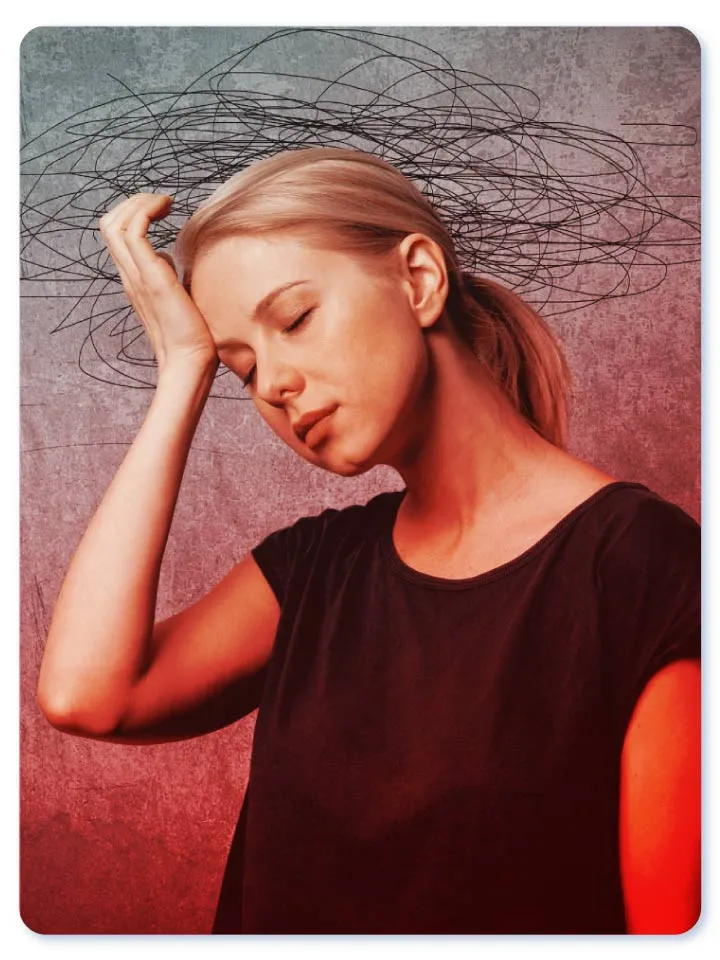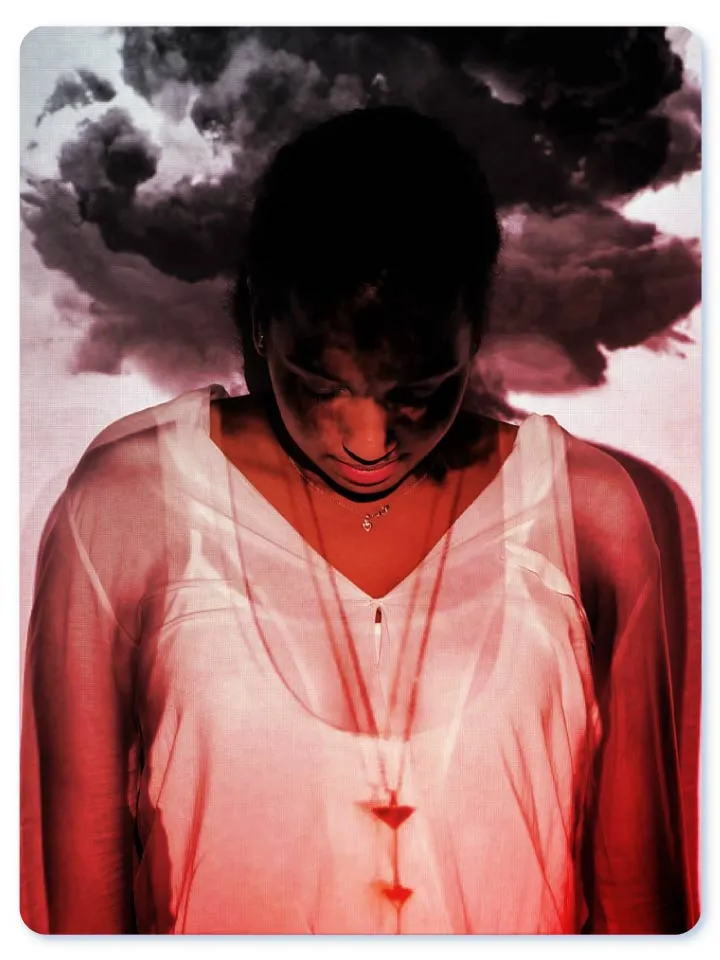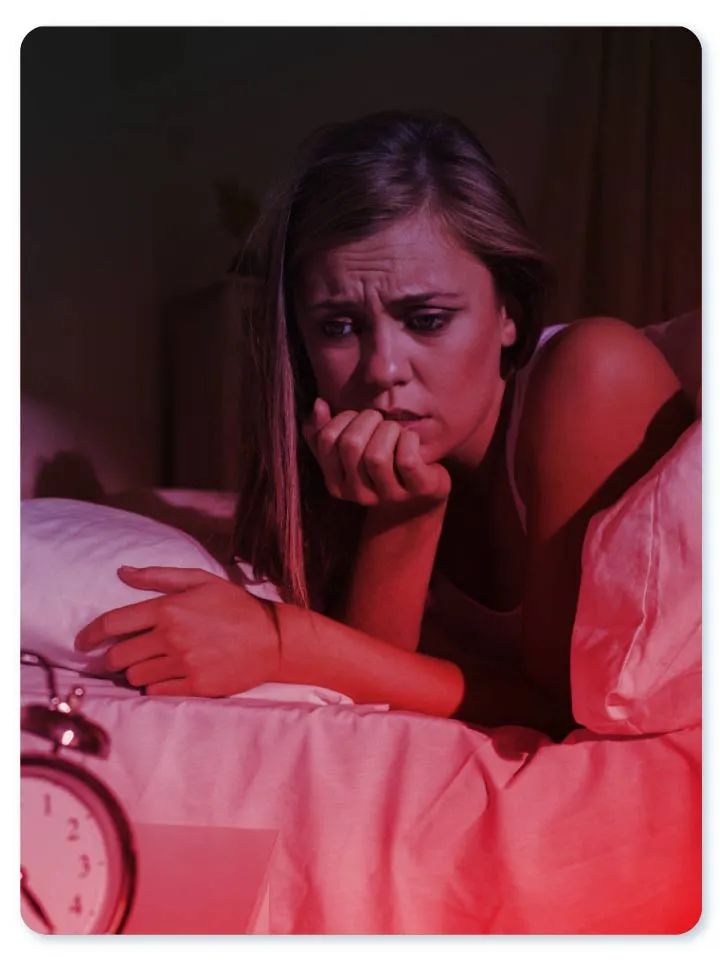Bipolar Disorder
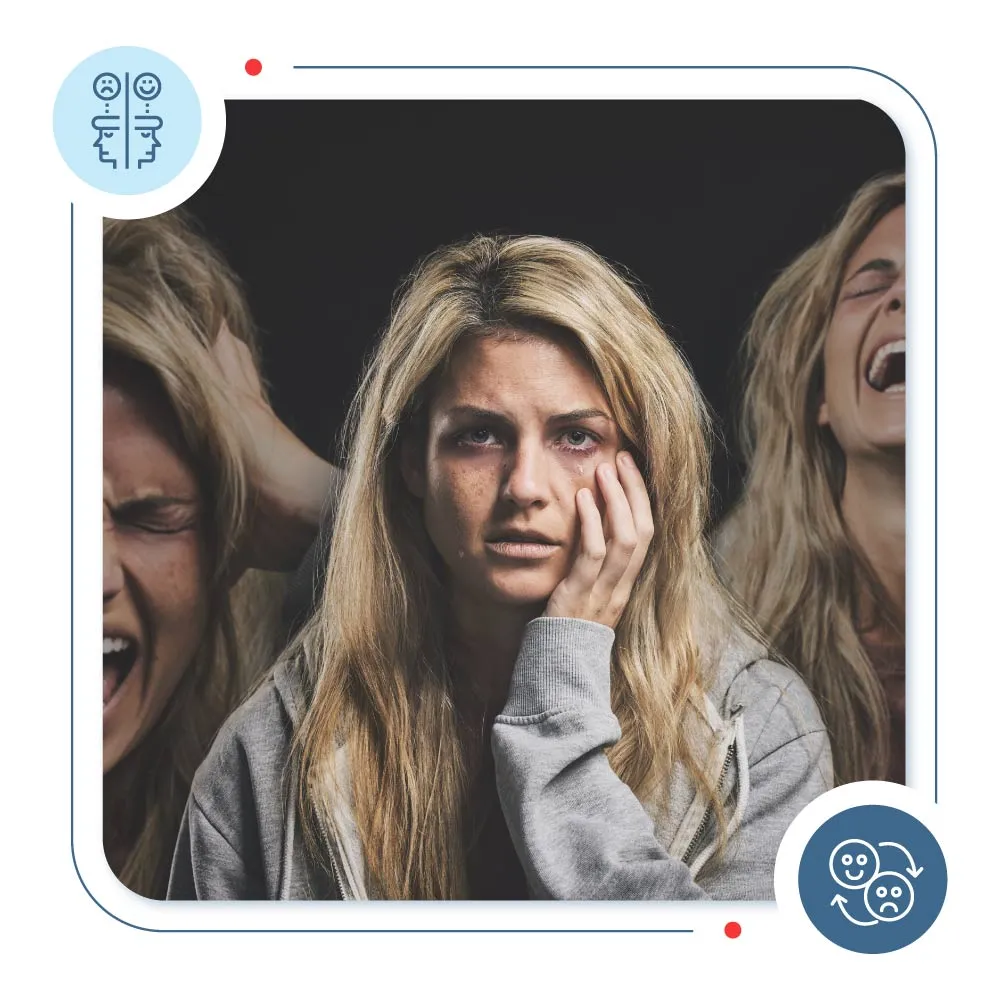
What is Bipolar Disorder?
Bipolar disorder is one of the mental health issues associated with mood disorders. As the name suggests, bipolar disorder makes you experience two extremes of mood. You are also apt to face drastic shifts in your stamina and behavior. When you come across periods of emotional highs, you sense intense happiness and excitement (mania/hypomania), which makes you feel fully energized and enthusiastic. Then, you go through emotional lows (depressed phase), where you become very sad and hopeless, losing your interest in all the activities you used to enjoy before.
Bipolar disorder is not that uncommon, and you are not all by yourself in this tough spot. The World Health Organization clearly states that 40 million people have bipolar disorder, which makes up around 0.53 % of the population all over the world.
Anyone can have bipolar disorder regardless of gender. It is common in both men and women. Symptoms of bipolar women may include a higher frequency of depressive episodes, especially psychotic depression. Bipolar men tend to engage in substance use and display more violent suicide attempts.
Mid Cities Psychiatry is your ultimate companion in battling bipolar disorder.

Bipolar Disorder Symptoms
Bipolar disorder makes you oscillate between two extremes of mood, and you notice intense shifts in your emotional state. When you encounter an episode of mania (or hypomania), your energy levels are boosted. You might experience:
- Elevated mood that motivates you to do as many activities as possible
- Overly optimistic behavior
- Distorted sense of well-being
- Only feel a little need for sleep or rest
- Inflated self-esteem makes you feel like a very important and empowered person
- Overactive mind with racing thoughts
- Talking at a very fast pace and jumping among various topics
- Unable to focus on one task for a while
- Taking impulsive actions such as reckless driving, overspending, or making shortsighted financial decisions
Manic symptoms seriously affect your daily activities, making it difficult for you to do simple tasks. Hypomania shares the same symptoms as mania but in much lesser severity. Hypomania usually doesn’t disrupt your daily functioning as much as mania does. You’re likely to feel quite normal during hypomania, but your close friends or family members may notice you being unusual.


After a period of emotional highs, your mood suddenly flips to a depressive episode. This phase of emotional lows lasts for no less than 2 weeks. You’re subject to feeling at least 5 or more of the following symptoms:
- Feeling very sad and hopeless for most of the day, early every day
- You lose interest in activities you used to enjoy before
- Drastic changes in weight (either gained or lost)
- Either unable to sleep or sleeping too much
- Overly tired or drained
- Constant sense of guilt or feeling worthless
- Being indecisive and unable to concentrate
- Either too restless (can’t sit still) or takes too long to act
- Recurrent thoughts of death or suicidal ideations
You might experience some other symptoms as well, which include:
- Being overly anxious
- Certain bodily symptoms that can’t be explained by any obvious cause, like backache, headache, stomach pain, heartburn, or loose stools
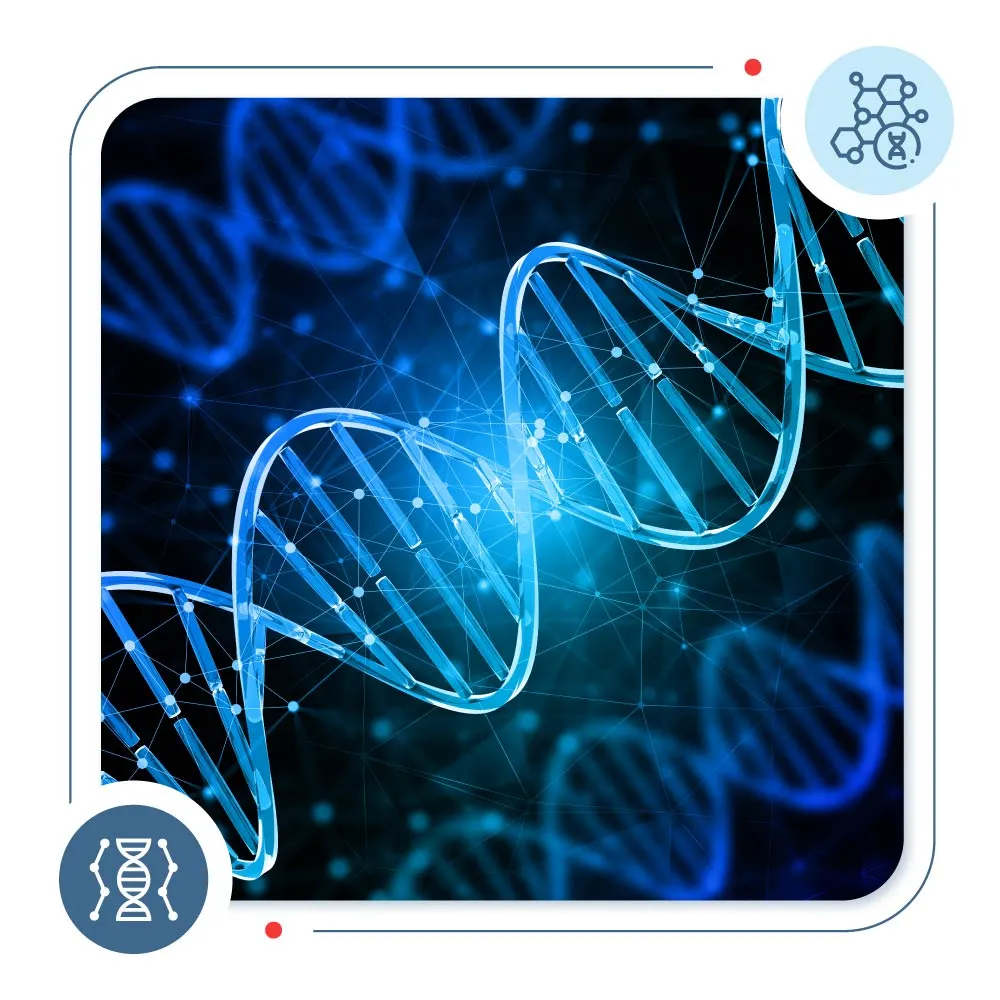
Bipolar Disorder Causes
Researchers are still looking for clear and well-defined causes of bipolar disorder to date. This remains a mystery what leads to bipolar disorder, just like many other psychiatric illnesses. However, several risk factors increase the chances of having bipolar disorder, which are:
- If you have a known family history of bipolar disorder.
- If you have specific abnormalities in your brain structure, researchers suggest that such variations in size or activity of your brain can cause bipolar disorder. However, actual brain scans couldn’t diagnose such malformations as of now.
- If you experience significant stress or trauma, especially in your childhood.
- If you are on specific medications or have a habit of substance abuse, such as alcohol or other recreational drugs.

Types of Bipolar Disorder
Bipolar disorder is divided into the following types.
Bipolar I Disorder
You are likely to have completely manic symptoms. Your mood is so elevated with at least 3 or more added symptoms out of the following bipolar I disorder symptoms.
- Feeling big-headed
- Not requiring sleep
- Enhanced purposeful activity
- Non-stop thoughts
- Boosted and overwhelmed speech
- Getting distracted easily
- Risky and negligent behavior
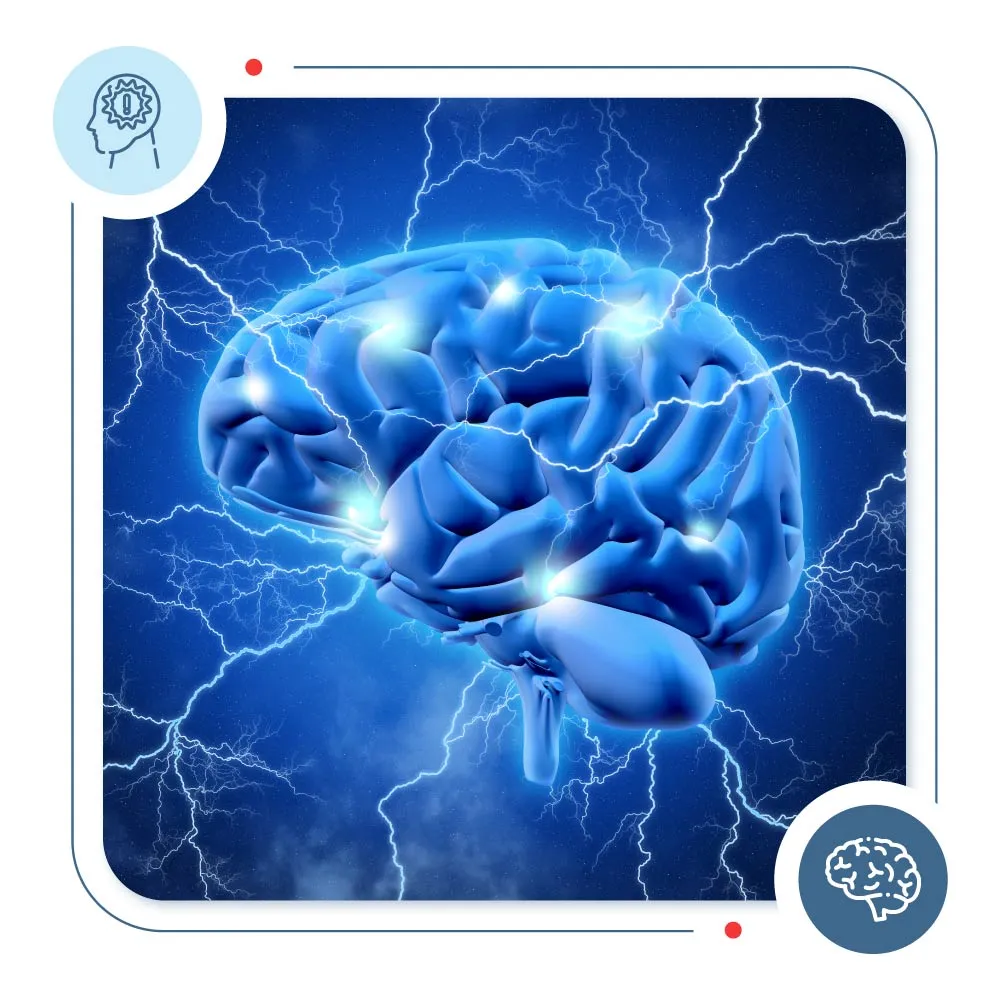

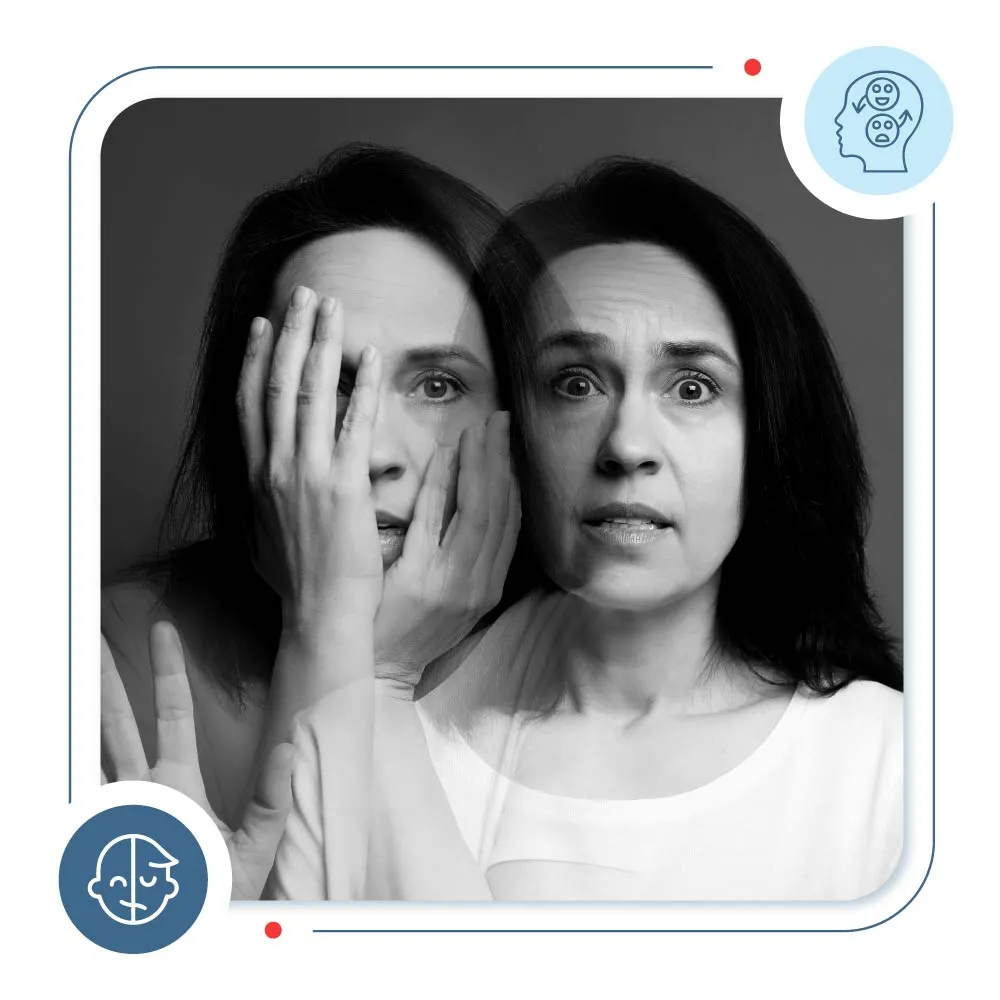
Bipolar II Disorder
Bipolar II disorder makes you face long-lasting depression on some days. However, on the other days, you encounter hypomania (a milder form of mania), which lasts for no less than 4 days.
Cyclothymia
Cyclothymia makes you suffer from some mood swings that are not as bad as full-scale depression or mania. It’s quite milder than actual bipolar disorder symptoms. You are labeled to have cyclothymia only if you get to face periods of mild depression and mild hypomania (low-level mania) for at least 2 years.
Bipolar and Related Disorder Due to Another Medical Condition
Some medical conditions, including thyroid disorder, stroke, and brain injuries, can make you go through the symptoms of bipolar disorder. There’s a chance of your recovery from signs of bipolar depression or mania after getting treated for the actual cause.
Substance/Medication-Induced Bipolar and Related Disorder
Your manic depression symptoms may also result from the side effects of some medications you take. Common ones are some classes of antidepressants, antipsychotics, or mood stabilizing medicines. Recreational drugs or alcohol can do the same for you.

Bipolar Disorder Treatment
We at Mid Cities Psychiatry always provide you with evidence-based mental health services. We address all types of bipolar disorder and offer you comprehensive mental health therapy options.
- Mood stabilizers
- Antipsychotics
- Antidepressants
- Antianxiety drugs
- Combination of drugs
Psychotherapy or Talk Therapy
- CBT
- Interpersonal Therapy
- Individual psychoeducation
Innovative procedures
- Electroconvulsive therapy
- Repetitive Transcranial Magnetic Stimulation TMS


FAQs
01
Why is bipolar disorder no longer called manic-depressive illness?
This term is misleading. You don’t experience the same kind of manic depression symptoms in all types of bipolar disorders. American Psychiatric Association APA, therefore, has standardized the use of Diagnostic and Statistical Manual of Mental Disorders (DSM-5) criteria for bipolar diagnosis. On top of that, the term ‘manic’ is still associated with lots of stigma across the world. Likewise, depression is also wrongfully referred to as being sad only.
02
Do the roots of bipolar disorder come from borderline personality disorder?
No, both are distinct mental health illnesses, but they do share some common symptoms. Borderline personality disorder also makes people sense intense mood shifts and behavioral changes. It is mostly triggered by conflicts in relationships. People with this disorder involve themselves in self-injurious acts, which are usually non-suicidal.
03
Is it possible for me to ever outgrow bipolar disorder?
You cannot completely outgrow bipolar disorder, but effective and ongoing management can control your symptoms. Your episodes of mania and depression may reduce over time, only with regular treatment.
04
Can I prevent bipolar disorder?
There is no definite way you can prevent yourself from developing bipolar disorder. If you ever happen to experience any signs of bipolar disorder, reach out to urgent care for mental health issues.
Real Stories, Real Recovery





We provide a comprehensive care provision for the most common mental issues people struggle with, such as PTSD, ADHD, OCD, anxiety, depression, sleep disorder, schizophrenia, and numerous other mental health conditions.



